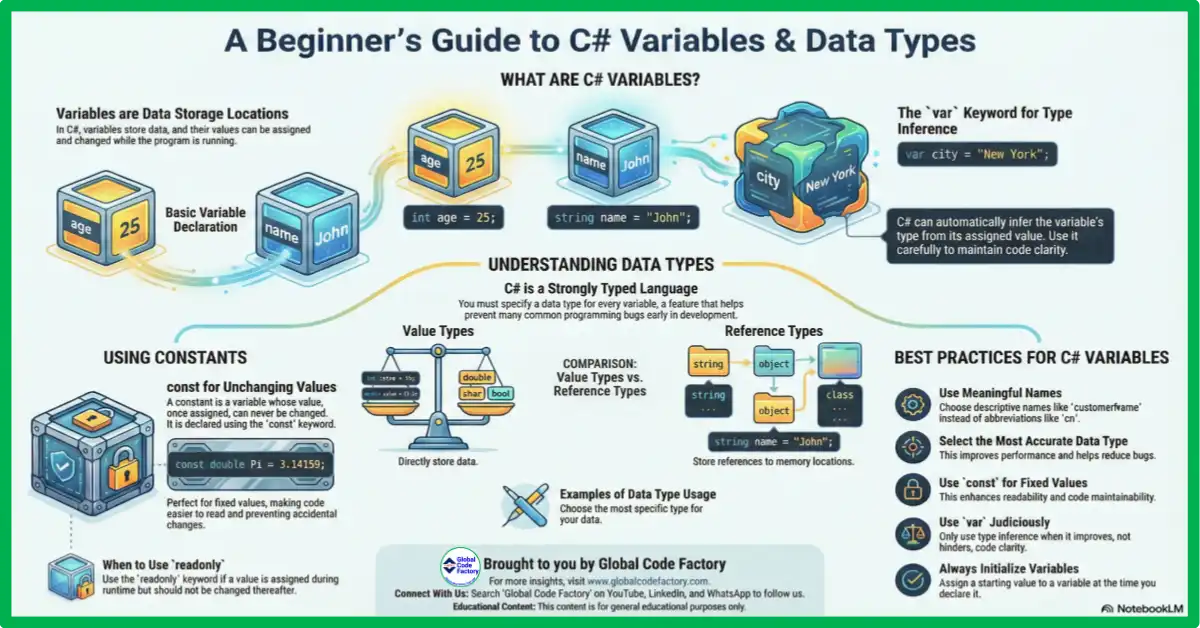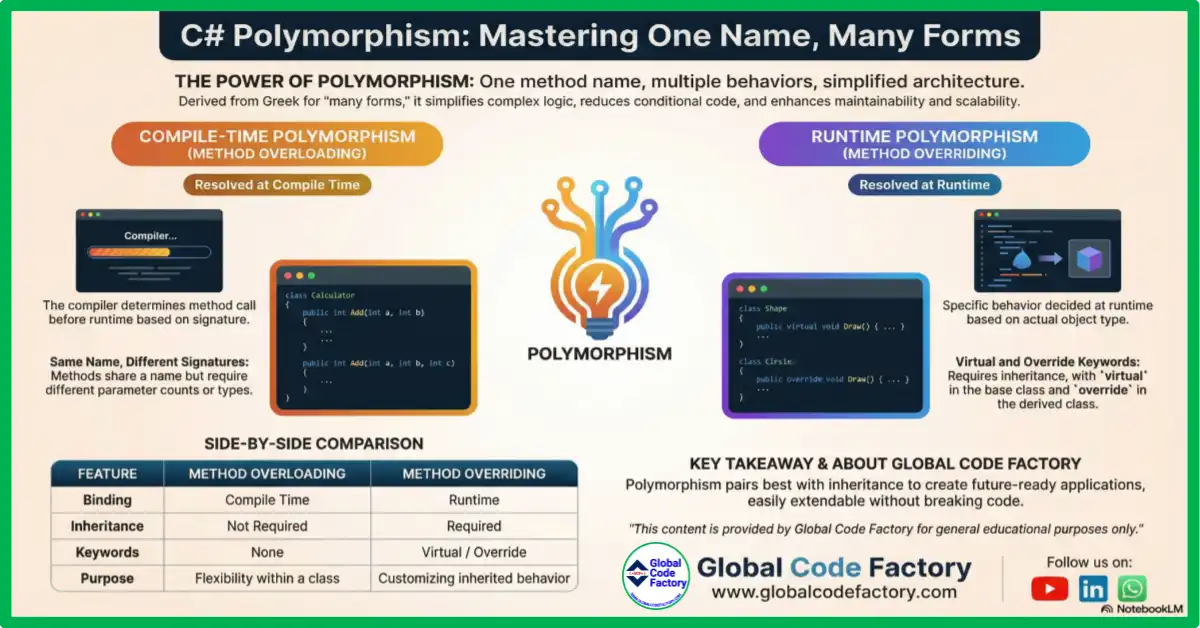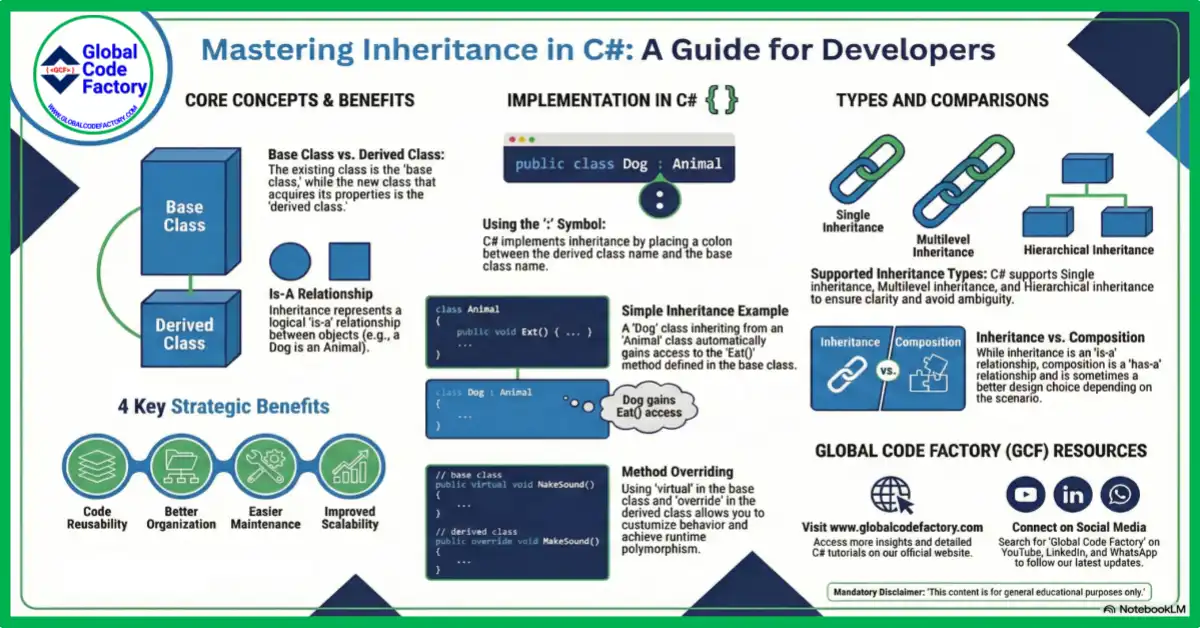C# Variables and Data Types: Learn with Real Examples
Every C# application is built with C# variables. They store data and use code to specify how that data should behave. Prior to delving further into C# coding, it is imperative to comprehend how variables function.
Because C# is a strongly typed language, we must specify a data type for every variable. Because of this, you avoid a lot of common programming problems early .
Let us examine how C# constants, data types, and variables interact to create understandable and effective code.
What are Variables in C#?
In C#, we call variables data storage locations. We can assign and change their values while the program runs.
Here’s a basic illustration:
The data types used in this code are string and int. Name and age are variables. We can use them again and again in the code.
C# also permits the use of the var keyword. It infers the type from the assigned value:
This is useful, especially when working with LINQ or anonymous types. However, use it carefully for clarity.
Common Data Types in C#
Data types define the kind of information a variable can store. They are classified as reference types and value types in C#.
Value types directly store data. Among the examples are:
intdoublecharbool
Reference types store references to memory. Examples include:
stringobjectclass
Selecting the appropriate data type lowers bugs and enhances performance. As a result, always choose the type that is most particular.
Here’s an example of various data types:
Each of these represents a different kind of data you may use in an application.
What are Constants in C#?
A constant is a variable that, once assigned, never changes in value. To declare it, use the const keyword.
Example:
Constants make text easier to read and prevent accidental changes. For fixed values, such as tax rates or limits, they are perfect.
Use the read-only keyword in place of const if you wish to make a value read-only even though it may change during runtime.
Best Practices for C# Variables
- Instead than using cn, use meaningful names like customerName.
- Select the data type that is most accurate.
- For fixed values, use const.
- Use var only when necessary.
- Always initialize variables.
Following these simple rules makes your code more readable and maintainable. Also, it aligns with standard C# coding practices.







